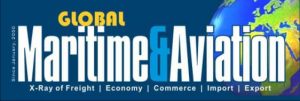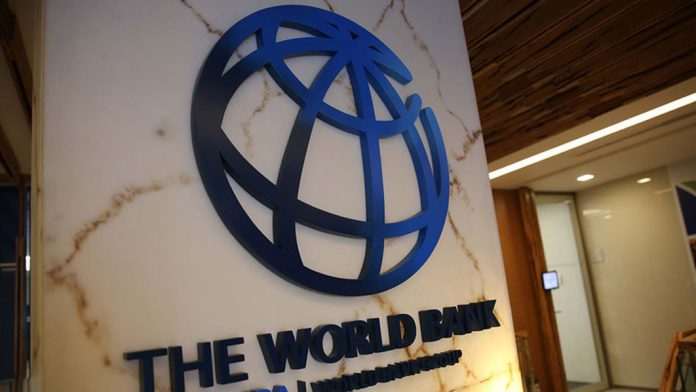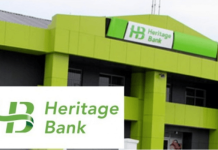The World Bank has stated that the Nigerian National Petroleum Company Limited’s (NNPCL) presentations to the Federal Account Allocation Committee (FAAC) were inconsistent and lacked crucial details about its operations.
This was revealed in the bank’s Accelerating Resource Mobilisation Reforms (ARMOR) Report on May 17, 2024.
According to the WB, in addition to lower net oil income, NNPCL’s opaque governance has considerably hampered the transmission of oil earnings to the federation.
“Non-transparent reporting to the Federal Ministry of Finance (FMF) and the Federation Account Allocation Committee (FAAC) makes it difficult for authorities to monitor NNPCL’s performance, calculate expected oil and gas revenues, and determine the difference between revenues received by the Federation and NNPCL’s total revenue.
“The reports given to FAAC by NNPCL are inconsistent and lacking information such as data on pledged revenues, the tradeable value of crude oil, actual payments, and receipts from global trade, among other things. According to the Nigeria Public Finance Review (2022),7 financial reporting is opaque as a result of quasi-fiscal activities such as in-kind revenues in the form of crude oil and costs directly deducted from revenues that would otherwise have been transferred to the Federation Account,” the report stated.
NNPCL is controlled under the Petroleum Industry Act (PIA 2021).
The world’s biggest bank mentioned an example in which the NNPCL promised the owners 35,000 barrels of crude oil per day in exchange for a 20% interest in the privately owned Nigerian Dangote refinery.
Although the overall value of the contractual investments for committed oil revenues was projected to be $5.8 billion by the end of 2022, NNPCL’s actual declaration fell short of expectations.
Read Also: Onuzulike: Potter’s Wheel Foundation Seeks to Transform Nigeria’s Youth into Producers
“All production sharing contracts signed by NNPC indicate that all fiscal payments must be made in-kind, allowing the NNPC to lift tax, royalty, and profit oil. In joint venture activities where the Federation owns 55% or 60% of the equity oil and gas, the NNPC manages crude oil and natural gas receipts on its behalf.
However, these contracts account for more than two-thirds of Nigeria’s entire oil production.
“Nigeria’s reliance on oil and gas earnings creates budgetary fragility. During the commodity-price boom of 1996-2014, the revenue-to-GDP ratio was 12% (albeit far lower than the Sub-Saharan Africa (SSA) average of 21.5% at the time), whereas a decade later, it was only 7.7% in 2023.
” Despite a 116% increase in international oil prices between 2020 and 2022-2023, net oil and gas fiscal revenues transferred to the Federation fell from 2% to 1.8% of GDP during the same period, owing to lower oil production and the retention of fiscal transfers to finance the gasoline subsidy.
“Oil output decreased from 1.8 million barrels per day (mbpd) in 2020 to 1.4 mbpd in 2022-2023 because to insecurity, a lack of investment, and proper maintenance. The cost of gasoline subsidies grew from 0.9 to 1.6 percent of GDP over this period, deducted directly by the Nigeria National Petroleum Corporation Limited (NNPCL)5 and lowering net oil income transfers to the Federation Account.”
Furthermore, WB stated that the NNPCL has preserved oil and gas income for projects such as a gas pipeline to Morocco.
“NNPCL also entered contractual arrangements that pledge future oil and gas revenues to business partners in lieu of cash payments,” according to the report.
FG Eyes Fresh $750 million W’Bank Loan
The federal government is also seeking a $750 million loan from the World Bank.
This loan project is part of a larger $2.25 billion package approved by the World Bank for Nigeria on June 13, 2024, to boost the country’s economic stability and assist disadvantaged communities.
The second component of the loan package was for the Nigeria Reforms for Economic Stability to Enable Transformation, Development Policy Financing Program project.
The loan agreement has already been signed by Nigeria (via the Ministry of Finance) and the World Bank.
The agreement document read in part, “The bank agrees to lend to the borrower the amount of $750,000,000 as such amount may be converted from time to time through a currency conversion (“Loan”), to assist in financing the programme described in Part 1 of Schedule 1 to this Agreement (“Programme”) and the project described in Part 2 of Schedule 1 to this Agreement (“Project”, and together with the Programme, hereinafter jointly referred to as the “Operation”).
“The borrower may withdraw the loan proceeds in line with Section IV of Schedule 2 of this Agreement. The Bank will deposit all withdrawals from the loan account into an account chosen by the borrower and acceptable to the bank.”
According to the loan agreement’s Disbursement Linked Indicators, the loan will be delivered only once measurable success is made in important areas.
These include enhancing VAT collection through better laws, hiking excise taxes on health and environmental goods, and improving corporate tax compliance through better digital infrastructure.
The government’s goal to raise VAT rates and increase taxpayer compliance lies at the heart of the ARMOR scheme.
Some of the loan targets include boosting VAT receipts to 1.8% of non-oil GDP, which would unlock $105 million.
According to the World Bank, despite recent reforms, Nigeria’s non-oil tax revenues are underperforming due to low tax rates, poor compliance, a restricted tax base, and excessive tax expenditures.
Reforms implemented in 2020-2021 raised non-oil tax revenues from 2.3% of GDP in 2020 to 3.7% of GDP in 2023, owing to increases in Value-Added Tax (VAT) rates, improvements in tax digitalisation, and the unification of the exchange rate in 2023.
Read Also: How 23-year-old lady was murdered by male friend she met on dating site as Delta state command assures justice; urge ladies to be mindful
“Despite this growth, Nigeria’s tax collections remain far lower than those of its counterparts (Figure 2). Unlike most developing countries, Nigeria has yet to use VAT (a federal obligation to collect and share VAT income) as a major source of revenue. VAT collections were only 1.2% of GDP in 2022, while VAT tax expenditures were anticipated to be 1.98% of GDP (the most recent statistics available).10 The present VAT rate of 7.5% is the lowest in Africa, and far lower than the SSA average of 15.8%. The VAT legislation operates similarly to a sales tax, as enterprises are unable to reclaim input VAT on purchases of fixed assets, services, and general administration expenditures.
“Meanwhile, Corporate Income Tax (CIT) has a very narrow tax base, and while collections have increased in recent years, they will account for only 1.6% of GDP in 2023.” In comparison, poorly designed and sometimes discretionary CIT expenditures are predicted to cost 0.4% of GDP.11 Excise rates are extraordinarily low by global standards, with revenues of less than 0.1% of GDP in 2023.12 Personal Income Tax (PIT) is assigned solely to the states, where collection issues exist due to tax evasion and underreporting: just 13% of the workforce is registered for PIT (2018), with only 2% stated as active.
The bank urged that the tax and customs administrations be modernised to boost efficiency.








